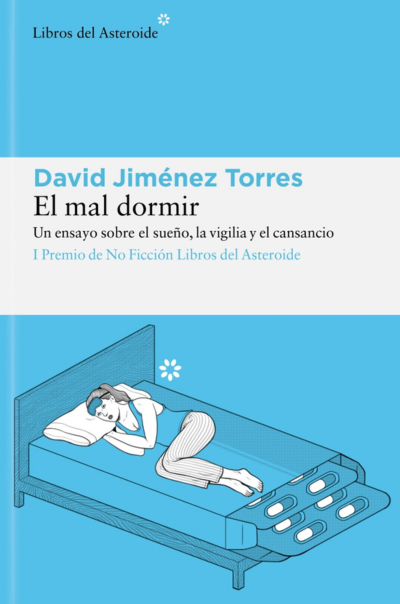Today, Europe is in decline. Contrary to what media headlines say, attributing this decline to an economic and/or political crisis, the decline of the old continent is due to one of a cultural nature: the crisis of the original principle of Europe, which was born from the meeting between Jerusalem (the letters of Saint Paul), Athens (contemplative life) and Rome (the technique). In other words, Europe is substantially a construct of values (Judeo-Christian values) and the cultivation of the critical spirit, which are rooted in listening and gaze and which, implicitly, have been forgotten. Some reasons that explain the loss of the capacity of contemplation are relativism, hedonism and the homo faber.
Relativism, whose epitome is found in the homo mensura of the sophist Protagoras, basically maintains that «man is the measure of all things, of what they are in what they are, and of what they are not in what they are not.» This has become the ideological framework of reference in Europe and has eroded its nature. The European, who has had so much faith in reason and science, has already stopped believing in them. If, as relativism affirms, there is no truth; and, if it existed, the human being cannot know it; and, if he knew it, he would not be able to explain it, it becomes that man is incapable of understanding and knowing good, justice, truth, beauty, etc. It follows that the relativistic European has renounced the contemplation of these goods, from the moment they have lost their attractive strength. Good is not only reduced to recognition but is called to fulfilment. It is more, true and well they go together, and its splendour is beauty.
It is urgent to activate our homo sapiens to rescue freedom of thought, in order to make a critical reading of events
It is not trivial that for the ancient world (not only the Greco-Latin one), beauty was a matter of the utmost importance, and that every question related to happiness and the search for truth appeared linked to it. In fact, the three keys to architectural works are firmitias, utilitas and venustas — stability, utility, and beauty. However, relativistic Europe has disregarded the latter and has replaced it with interest (utilitas). But it has also sacrificed the firmitas (there is no truth, nothing is stable). And, if we forget about beauty, we stop understanding ourselves.
Paradoxically, in this relativistic Europe, the word negotiation is very much in vogue. But we negotiate on grounds where, basically, there is no distinction between good and evil. And the reason is the thesis that defends that man is incapable of knowing the truth, good and beauty, despite the fact that this is the way that all reality is preached, including negotiation.
This atrocious relativism —everything is worth the same thing— leads almost by osmosis to a hedonistic attitude. Europe, a continent that has spared no efforts for its reconstruction after the disaster of the two World Wars (with the difficulty that it was for Germans, French and English to sit at the same table of dialogue) has come to prevail the motto of «I am going to have a great time”. That is, to live without a spirit of sacrifice. And, as Florentino Portero, director of the Institute of International Policy of the Francisco de Vitoria University, points out, the hedonistic culture in Europe means that “there are no marriages, and if there are, they do not want to have children. That is called historical suicide”. Thus, the European population is very aged (with an average age of 44 years), with birth rates that are reaching their lowest historical records. Something very worrying, given that, in international relations, size matters and in what way. To be a global actor, you need a considerable population and/or territorial dimension, which Europe, today, is losing due to the demographic suicide caused by its hedonistic culture.
This can also be detected at the level of the EU institutions or the “European project”, which lacks a joint vision of external action against this increasingly globalised world. Having been at the forefront of science, reason and values, Europe has become self-absorbed. And this is added to the perception of suspicion that regions like Africa have of the old continent for its colonial past and the slave trade. These factors have contributed to the fact that most European countries have not assumed a common strategic commitment (nobody wants to sacrifice anything) to act as a global actor. Once again, a crisis of listening and of looking, which should lead Europe to consider «where are we going» and/or «how do we respond to the challenges of postmodernity».
On the other hand, post-industrial society subjects man to work in a somewhat rough way —production-led activity— with a view to privileging utility, performance, efficiency, and product. This way, there is a step taken from homo sapiens (he who knows and contemplates), to homo faber (he who works, makes or manufactures, the production man-machine). That is, the post-industrial society has led the human being to engage in a frenetic activity, excessively secularised, and threatens to turn the world into one, only and exclusively, made of «days of labour», in the words of Josef Pieper in his work Leisure the Basis of Culture. Man flees from the contemplative life, from stopping to think. Blaise Pascal said that all the evil of men comes from one thing: not knowing how to remain at rest. Only a few people think about the truth deposited in the being of things.
Not many European citizens stop to reflect with sufficient attention and rigour on the circumstances that they are going through. They neither look nor listen. For this reason, the analysis of what Francisco Suárez —great teacher of Spanish scholasticism— calls civil resistance has remained today in the media used to carry out demonstrations. Thus, it is more interesting how to protest and not so much why it is done. That is to say that today, many manifestations that are undertaken do not imply a deepening of the ends that they pursue, thus disregarding the Suarecian teleologism, which understands that the legitimacy of all civil resistance resides in the pursue of the common good or its improvement.
In short, the crisis in Europe today lies in the loss of the capacity for contemplation that has characterised this continent since it was born from the convergence of the Judeo-Christian and Greco-Latin worlds. It is not by chance that one of the great reconstructions of Europe that we know was carried out by his own patron, the monk Saint Benedict, with his ora et labora.
Relativism is the spearhead on which the collapse of the original ideological principle of Europe rests: Judeo-Christian values and critical spirit. By dismantling the entire building built on firmititas, utilitas and venustas, Europe has lost faith in reason and science, and has committed suicide.
It is urgent to activate and train our inner homo sapiens to rescue freedom of thought and contemplation, in order to make a critical reading of the events taking place in Europe and beyond. The current vegetative state of the citizens of the old continent must be broken. It is imperative that it makes memory to recover its identity and build its future effectively. And, to achieve this, we have to go back to listening and looking. Otherwise, the emerging powers will continue to pass over it, to the point that Europe will be dragged towards paths of which it is not the author.






